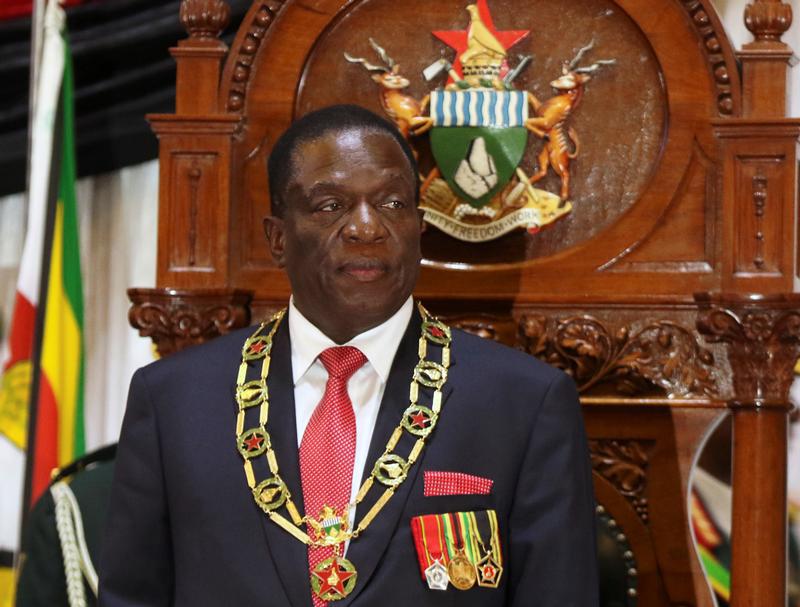US Senators Press Zimbabwe to Hold Free, Fair Elections
| Publisher | Human Rights Watch |
| Publication Date | 12 April 2018 |
| Cite as | Human Rights Watch, US Senators Press Zimbabwe to Hold Free, Fair Elections, 12 April 2018, available at: https://www.refworld.org/docid/5b39f2a34.html [accessed 20 May 2023] |
| Disclaimer | This is not a UNHCR publication. UNHCR is not responsible for, nor does it necessarily endorse, its content. Any views expressed are solely those of the author or publisher and do not necessarily reflect those of UNHCR, the United Nations or its Member States. |
Sanctions Renewed Against 77 Officials, Including Zimbabwe's President
April 12, 2018 3:43PM EDT Dispatches
Dewa Mavhinga, Director, Southern Africa
 Zimbabwean President Emmerson Mnangagwa looks on after delivering the State of the Nation Address (SONA) in Harare, Zimbabwe, December 20, 2017. © 2017 Reuters
Zimbabwean President Emmerson Mnangagwa looks on after delivering the State of the Nation Address (SONA) in Harare, Zimbabwe, December 20, 2017. © 2017 Reuters
When a bipartisan delegation of five US senators visited Zimbabwe last week, they pressed President Emmerson Mnangagwa and his foreign affairs ministers on free elections. In March, the US government slapped key Zimbabwean officials – including its president – with renewed targeted sanctions, calling for credible, free, and fair elections.
The sanctions were in line with recommendations made by Human Rights Watch in US Senate testimony last December and by other organizations and experts.
President Mnangagwa is one of the 77 Zimbabwean newly sanctioned officials, following the November 2017 military coup that ousted longtime leader Robert Mugabe. Following the coup, the authorities allegedly committed arbitrary arrests and detentions and other human rights abuses.
Although Mnangagwa has promised free and fair elections, he has yet to present a roadmap for doing so. First on the list should be repealing or amending repressive laws like the Public Order and Security Act and the Access to Information and Protection of Privacy Act, which have been used to arrest peaceful protesters and censor critical media.
Additionally, Zimbabwe's state security forces, notably the military, have for years interfered in the nation's political and electoral affairs, including killing, beating, and torturing people who supported the opposition. Zimbabwe should separate the military from politics and prevent soldiers from intimidating and harming voters. The police also need to get the message to act professionally and impartially at all times.
The early deployment of independent domestic and international election observers should be agreed to.
Mnangagwa has a fresh opportunity to set Zimbabwe's trajectory towards political stability, which could open up the country for international re-engagement. Genuine and demonstrable progress on electoral and security sector reforms are needed to safeguard human rights. These changes, together with ensuring fair elections, are key benchmarks on which his administration should be judged.
Link to original story on HRW website

